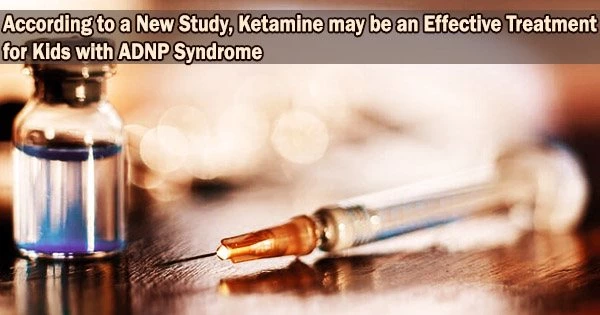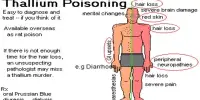Results of a small but innovative study conducted at the Seaver Autism Center for Research and Treatment at Mount Sinai and published online in Human Genetics and Genomic Advances indicate that low-dose ketamine is typically safe, well-tolerated, and useful for treating clinical symptoms in kids with ADNP syndrome, also known as Helsmoortel-VanDerAa syndrome, a rare neurodevelopmental disorder brought on by mutations in the activity dependent neuroprotective protein (ADNP) gene.
The ADNP gene has an impact on how the brain forms, develops, and functions, and the protein it generates aids in regulating the expression of other genes. One of the most frequent single-gene causes of autism is ADNP mutations.
The use of ketamine for anesthesia, pain relief, and more recently as a depression treatment was licensed in the United States in 1970. Low-dose ketamine may be neuroprotective and boost ADNP gene expression, according to studies in animal models.
“We were intrigued by the preclinical evidence suggesting that low-dose ketamine may increase levels of the ADNP protein and compensate for its loss in ADNP syndrome, so we designed this study to evaluate the safety, tolerability, and behavioral outcomes of low-dose ketamine in children with the syndrome,” says Alexander Kolevzon, MD, Clinical Director of the Seaver Autism Center. “We also sought to explore the feasibility of using electrophysiological biomarkers and computerized eye-tracking to assess sensitivity to treatment.”
The Mount Sinai research team employed a single-dose (0.5mg/kg), open-label design with intravenous infusion of ketamine for 40 minutes in order to assess the drug’s effects. Ten ADNP syndrome patients, aged six to twelve, were enrolled. They discovered there were no significant adverse events and that ketamine was typically well tolerated.
We are encouraged by these findings, which provide preliminary support for ketamine to help reduce negative effects of this devastating syndrome. Future studies using a placebo-controlled design and studying the effects of repeated dosing over a longer duration of time and in a larger cohort of participants are needed before ketamine is used clinically, but our study is a promising first step in that process.
Dr. Alexander Kolevzon
Elation/silliness (50 percent), fatigue (40 percent), and increased aggressiveness (40 percent) were the most frequent adverse effects. Ketamine was linked to improvements a week after injection in a variety of categories, including social behavior, attention deficit and hyperactivity, limited and repetitive behaviors, and sensory sensitivity, according to parent-report measures used to evaluate treatment effects.
Based on the Clinical Global Impression-Improvement scale, a seven-point scale frequently used by clinicians to evaluate how much a patient’s illness has improved or worsened in comparison to a baseline state at the beginning of an intervention, the results from the clinician-rated assessments indicated improvement.
It’s significant that the outcomes of assessments conducted with caregivers and clinicians were broadly consistent. The findings also show promise for using electronic eye-tracking and an electrophysiological listening task known as the auditory steady-state response to measure early changes in social attention.
“We are encouraged by these findings, which provide preliminary support for ketamine to help reduce negative effects of this devastating syndrome,” Dr. Kolevzon says. “Future studies using a placebo-controlled design and studying the effects of repeated dosing over a longer duration of time and in a larger cohort of participants are needed before ketamine is used clinically, but our study is a promising first step in that process.”
Ongoing investigations include utilizing DNA methylation analysis, which has been previously characterized as important in the ADNP syndrome, as well as RNA sequencing to evaluate changes in ADNP expression and other genes.
DNA methylation controls gene expression and suppresses it, which is essential for embryonic development. Neurodevelopmental problems and congenital abnormalities have been associated with an increased prevalence of unusual and severe DNA methylation levels.
















